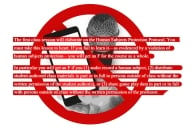You have /5 articles left.
Sign up for a free account or log in.
The nation’s oldest graduate school of business is adopting sweeping changes to its M.B.A. curriculum that come with a unique acknowledgment: two years of study alone cannot prepare graduates for decades of future unpredictability.
The changes at the Wharton School of the University of Pennsylvania, which were supported by 87 percent of its faculty members in a vote last week, call for a more flexible menu of core courses, a greater emphasis on ethics, and new requirements designed to make students better communicators and judges of risk. They also promise future training -- free -- to graduates every seven years.
Though more minor changes have been adopted in recent years, the new measures, announced in a statement released Monday, represent the first large-scale alterations to Wharton's program since the early 1990s, said Thomas S. Robertson, Wharton's dean. A committee spent 18 months surveying more than 2,000 students, alumni, recruiters and board members. "There’s a lot of research behind it," said Robertson. "What we were trying to understand was, going out 20 years, what the world and M.B.A. education should look like."
Inherent in Wharton's design is the concession that no one really knows the answer. Changes -- in technology, the pace of work and life, global competition, and the environment -- have roiled the world, and business in particular, since the last curriculum revamping. Wharton's solution is to offer tuition-free executive education training to future graduates of its master's in business administration program, in what it dubs a "radically new vision of business education as a lifelong 'knowledge partnership.' "
According to this new model -- which Robertson likened to a sabbatical -- incoming students will be eligible to take, for free, a one-week executive education course every seven years after they graduate. About 10,000 students each year have come through Wharton's executive programs, which now cost between $25,000 for two weeks and $50,000 for a month. More than 800 are enrolled in this year's entering M.B.A. class. But there has been room in classes and the idea was seen as being important enough to offer for free in small doses, said Robertson. "It’s a notion that, while we may do a good job of preparing students for the next few years, things are changing rapidly,” he said. "They need to come back for job training."
Such a move is unusual and, quite possibly, unprecedented among business schools, said Dan LeClair, senior vice president and chief knowledge officer of the Association to Advance Collegiate Schools of Business. "In higher education, we generally think of degrees in the front-loaded sense: here's everything you need to know and then we wish you the best," he said. "This commitment they’ve made to career-long executive education is not only something that has changed the competitive landscape in business education, but also fits perfectly into our belief that management education is not something you can manage in just two years or one year."
The changes to a more flexible program also reflect a recognition that M.B.A. students are, on average, older and more diverse, and hail increasingly from outside the U.S. -- and therefore enter such programs with a broader and deeper history in the workplace. The number of required courses will be pared down from 11 to nine, and reorganized into six different clusters (some of which are new and others of which expand upon existing areas of study) -- finance and the global economy; ethical and legal responsibility; managing the global enterprise; understanding and serving customers; corporate reporting and control; and management of operations, innovation, information and decisions under uncertainty -- with multiple courses offered to satisfy each of those areas. "They’ll be more able to jump, in their first year of the MBA program, into courses that may be related to their interests than in the past," said Robertson.
Some electives will be elevated to the level of required courses, said G. Richard Shell, professor and chair of the committee that drafted the changes, who added that research revealed that the more popular electives were also seen as more valuable by students and alumni. These courses include such subjects as geopolitics, innovation, and decision-making.
Both Shell and Robertson said the top-to-bottom review was under way before the business world was upended by the financial crisis in 2008, though they also said these circumstances informed their work. So, too, have events that have taken place since the onset of the crisis. For example, Wharton students will be exposed to policy in greater depth than before. Robertson pointed to the federal stimulus package as one reason for the move. "Legislators didn’t know much about business and finance," he said, "but at the same time our students didn't know that much about government."
Widespread concern with ethics among business schools is also evident at Wharton. The new version of its existing course will marry ethics with a study of the law, which Shell said will help students better delineate ethical conflicts and legal responsibilities. "By bringing these subjects together, we’ll be able to show students more vividly where those lines get crossed, and show why it matters so much to have an ethical sensibility," he said. Robertson said he hoped the changes would tie to what he saw as one of Wharton's "pillars," which he characterized as social impact. He has made the point elsewhere: "At Wharton it is central to our mission," Robertson wrote in The Huffington Post in October. "Business can and must be a force for good.”
Leadership training will be taught with an increased emphasis on self-awareness and self-criticism, said Robertson. Critical thinking skills will be increased with newly required courses in writing and presentations and, more specific to a business curriculum, in statistics and microeconomics. The latter requirements were adopted, in part, in response to the financial crisis, said Shell. Statistics will help quantify risks, and microeconomics will ground students in the fundamentals of how markets work. "If you know how markets work, you can recognize where a bubble is," said Shell.
Wharton is not the only college of business to undertake reviews of its curriculum. Bloomberg BusinessWeek reported that the University of California-Berkeley's Haas School of Business and the Stanford Graduate School of Business have done the same in recent months. Wharton, with its 250-member faculty and highly recognized brand, may well be undertaking a more ambitious and wide-ranging review than anyone else has -- or can, said LeClair. "What Wharton is doing will be very hard to replicate," he said.








